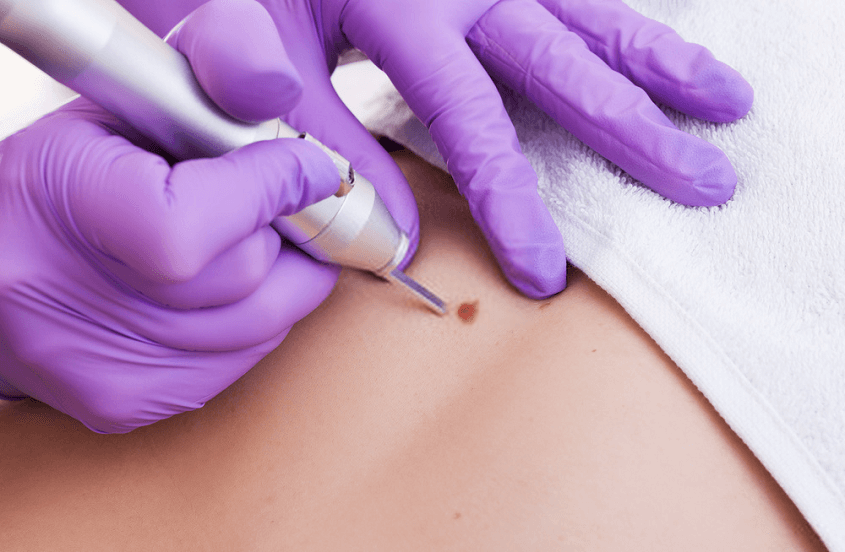Warts are common skin growths caused by the human papillomavirus (HPV). While most warts are harmless, they can be unsightly and uncomfortable. If you are seeking Warts Removal in Dubai, consulting a doctor is essential for safe and effective treatment. Doctors offer several medical approaches to remove warts quickly and efficiently, ensuring both cosmetic and health benefits. In this article, we will discuss the various medical treatments available for wart removal, their benefits, and what you can expect during the process.
Medical Diagnosis of Warts
Before starting treatment, a healthcare provider must examine the wart to identify its type. Warts can appear on various parts of the body, including the hands, feet, and face. A doctor may use a visual examination and, if necessary, a biopsy to confirm the diagnosis. Identifying the type of wart is crucial for determining the best treatment plan.
Cryotherapy for Warts Removal
Cryotherapy is one of the most commonly used methods for wart removal. In this procedure, a doctor applies liquid nitrogen to the wart, freezing the tissue and causing the wart to fall off. Cryotherapy is effective for many types of warts, including common warts and plantar warts. The procedure is quick and can be done in a doctor's office, with minimal recovery time. Cryotherapy usually requires multiple sessions for optimal results.

Electrosurgery and Curettage
Electrosurgery is a procedure where a doctor uses a small electrical current to burn off the wart tissue. This is often followed by curettage, where the wart is scraped off with a sharp instrument. This combination treatment is effective for stubborn warts that don’t respond to other methods. Electrosurgery is particularly useful for warts on the hands and feet, and while the procedure may cause mild discomfort, it is highly effective.
Laser Treatment for Warts
Laser treatment is another option for wart removal, especially for large or resistant warts. During this procedure, a doctor uses a focused beam of light to target and destroy the wart tissue. Laser treatment works by vaporizing the wart, causing it to shrink and eventually disappear. This method is typically used for warts that have not responded to other treatments and may require a few sessions for complete removal.
Immunotherapy for Warts
Immunotherapy is an advanced treatment where a doctor stimulates the body's immune system to fight the virus causing the warts. This is usually done by applying an immune-boosting agent, like interferon, to the wart or injecting it directly into the wart. Immunotherapy helps the body recognize and attack the HPV virus responsible for the wart, leading to the wart's eventual elimination. This treatment is especially useful for warts that recur or are resistant to other methods.
Benefits of Doctor-Based Wart Removal Treatments
Choosing a doctor for wart removal offers several benefits, including:
Safety: Professional treatments are safe and minimize the risk of complications or infection.
Effectiveness: Medical treatments are proven to be more effective than over-the-counter remedies, ensuring a higher success rate.
Personalized Care: Doctors can customize the treatment based on the type and location of the wart, ensuring the best outcome.
Minimal Downtime: Most doctor-based treatments are quick with little to no recovery time, allowing you to resume daily activities soon after treatment.
FAQs
How long does it take for warts to go away after treatment?
Warts can take from a few days to a few weeks to completely disappear after treatment, depending on the method used.
Are there any side effects after wart removal treatments?
Side effects are rare but can include mild irritation, scarring, or discoloration of the skin at the treatment site.
Is wart removal painful?
Wart removal is usually not very painful, though some treatments may cause mild discomfort, which can be managed with local anesthesia.
Can warts come back after removal?
While treatments are highly effective, warts can sometimes return, especially if the underlying HPV infection is still present.
Is wart removal treatment covered by insurance?
Coverage for wart removal depends on your insurance provider and the specific treatment method. It's best to check with your provider for details.
Conclusion
In conclusion, getting rid of a wart quickly and effectively requires professional treatment from a doctor. Medical treatments like cryotherapy, electrosurgery, laser therapy, and immunotherapy provide safe and effective solutions for wart removal. These doctor-administered treatments ensure better results than over-the-counter options, with minimal risk and downtime. If you're looking for quick and reliable wart removal, it's best to consult a healthcare provider to determine the most appropriate treatment for your specific needs.
